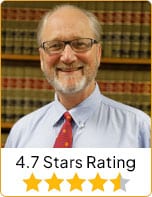What Exactly Is An Estate Recovery?
Estate recovery is a repayment to the state of California for the benefits a person received from Medi-Cal during their lifetime. Medi-Cal is different than Medicare; the former is a needs-based supplement to help pay for medical and long-term care benefits, while the latter is an entitlement that someone receives.
Does An Estate Recovery Affect Everyone?
An estate recovery does not affect everyone because it does not cover any benefits that someone would receive prior to the age of 55. Medi-Cal benefits received prior to the age of 55 are not subject to recovery, but the benefits received after age 55 are subject to recovery.
Will The State Of California Recover Any Benefits That Were Received Throughout The Medi-Cal Beneficiary’s Lifetime By Taking The Family Home Or Other Assets At The Time Of Death?
The state of California will not take a family home, but the home may be subject to a lien until the Medi-Cal repayment has been made. So, if a family member wishes to keep the home, they can do so as long as they agree to pay Medi-Cal for the services that were rendered to the person during their lifetime, up to the value of their home.
Can I Protect My Assets From Medi-Cal Recovery?
A person can absolutely protect their assets from Medi-Cal recovery. The law was changed in 2017 so that only those assets that are subject to the jurisdiction of the probate court can be claimed by Medi-Cal, which means that the assets have a beneficiary or joint owner. If the assets were held in a trust that has a beneficiary, then those assets would not be subject to Medi-Cal recovery.
Who Is Subject To An Estate Recovery And Who Isn’t?
In general, only the person who receives probated assets from the decedent is subject to estate recovery. However, this would not be the case if the decedent is survived by a spouse, is a child under the age of 21, or is a child who is blind or disabled.
How Does The Estate Recovery Actually Work?
During the estate recovery process, the administrator, executor, or personal representative of the estate must notify Medi-Cal within 90 days of the person’s death. Medi-Cal will then send a statement of the payments that have been made for the decedent’s benefit after age 55. If there are sufficient assets to pay the entire amount, or if they want to keep some of the assets, then they can arrange to make payments to pay off the debt.
Is An Allowance Made For Estate Debt And Expenses?
An allowance is made for estate debt and expenses, because a Medi-Cal claim can only be exercised against the net value of the estate. All costs of administering the estate and all debts that were owed by the decedent at the time of death take priority over the Medi-Cal claim.

What Changes Have Happened In The Past Few Years?
Prior to a very significant change that occurred in 2017, Medi-Cal could recover assets from any part of the decedent’s estate, including trust assets. This was a huge issue for people who had living trusts or who wanted to protect their assets by creating a living trust.
If I Am Currently Receiving Medi-Cal Benefits, Can I Pay Off My Debt Now To Avoid Inconveniences Later?
If a person is currently receiving Medi-Cal benefits, it would not be a good idea for them to pay off their debt right away in order to avoid inconveniences down the line. This is because if the person had the resources to pay off that debt, then they shouldn’t qualify for Medi-Cal in the first place; Medi-Cal is only for people who don’t have the resources to pay for their own care. Secondly, that person’s spouse would never have to repay their Medi-Cal benefit, and their children would only have to repay if the assets were subject to probate. It is advisable for a person to maintain their assets in such a way that they will not be subject to probate so that repayment will not need to be made. Even if Medi-Cal repayment does have to be made, they do not charge interest on what they have spent on the person during their lifetime. In this sense, it is essentially an interest-free loan, and there is no benefit to paying it off early.
What Can I Do If I Believe That There Is An Error In The Amount Of Services Reflected In The Bill?
If someone believes there to be an error in the amount of services reflected in the bill, then they can dispute the charges by filling out the form that is included in the Medi-Cal packet.
I Want To Pay The Claim, But The Only Estate Asset I Have Is A Home, And I Would Like To Keep The Home; A Lump Sum Payment Is Not Possible, What Can I Do?
If a person wants to pay a claim but their only asset is a home and they do not want to lose it, then they have two options. The first option is to arrange a payment plan with Medi-Cal to pay off the amount they recovered. The second option is to go to a lender and finance the home or borrow money on the home in order to pay the amount in full. Medi-Cal does charge interest after the death of the beneficiary, so the bank might be a viable option at that point as well. A person should compare the costs of these two methods.
Will The State Take My House?
The state will not take a person’s house; they will allow the person to place a voluntary lien on the house and make payments against the claim. If the payments aren’t made or a payment plan is not arranged, then the state will exercise the lien and the house will be sold. Then, the payments to Medi-Cal recovery will be made and any remaining money would go to the beneficiaries. This means that the equity in the house would never be lost, even if Medi-Cal exercised their right to sell their home.
For more information on Estate Recovery For Medi-Cal In California, a free initial consultation is your next best step. Get the information and legal answers you are seeking by calling (626) 335-6884 today.

